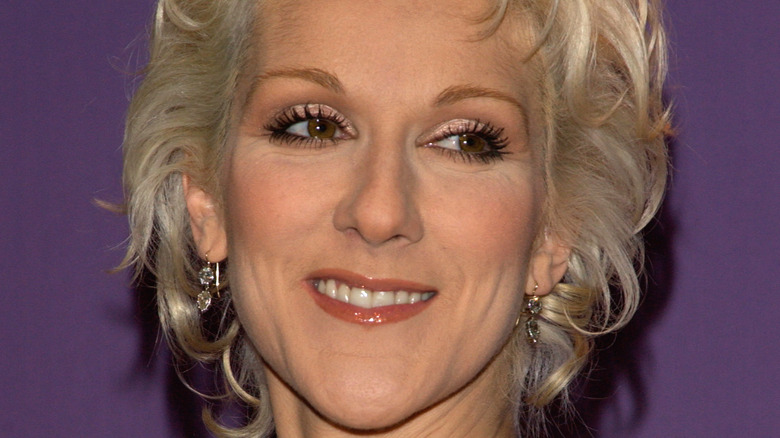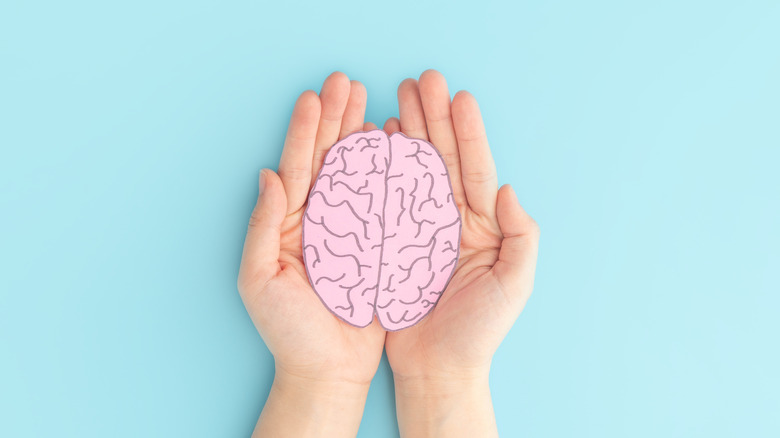The Neurological Condition Stiff Person Syndrome Explained
In an emotional video message posted on Instagram on December 8, beloved singer Celine Dion revealed that she has been secretly suffering from an astonishingly rare neurological disorder called Stiff Person Syndrome (SPS). The disease — which affects just one in 1 million people — attacks the central nervous system, progressively stiffening the muscles throughout the chest, abdomen, torso, and back, before eventually doing the same to the muscles in the extremities and elsewhere (per Cleveland Clinic). People with SPS are also prone to agonizing muscle spasms that are often elicited by environmental stimuli or emotional distress.
"Unfortunately, the spasms affect every aspect of my daily life, sometimes causing difficulties when I walk and not allowing me to use my vocal cords to sing the way I'm used to," Dion explained with tears in her eyes. The severity and rate of progression of SPS varies from person to person, but as it develops, people with the disorder may become locked into abnormal postures and may find it becomes increasingly difficult to walk, and sometimes more difficult to speak, swallow, or hear (per National Organization for Rare Diseases).
Why does it happen and what's the prognosis?
As SPS is extremely rare, the risk of receiving a diagnosis is minimal. Women seem to be disproportionately affected by the disease, with it occurring in two women for every one man, according to Cleveland Clinic. Regardless of gender, most people will begin seeing signs of SPS between ages 30 and 60, and the occurrence of certain autoimmune disorders and cancers is common amongst those with SPS.
While the causation of SPS remains a mystery, scientists have theorized that an autoimmune response is to blame (per National Institute of Neurological Disorders and Stroke). Because the trouble originates in the spinal cord and brain — similar to other degenerative diseases like Parkinson's disease or multiple sclerosis — the unusual disorder is widely misdiagnosed.
Much like other neurological disorders, there is not yet a cure for SPS. However, the symptoms can be managed and mobility can hopefully be improved with the help of steroids, sedatives, and muscle relaxants, according to Yale Medicine. Physical and occupational therapies can also be invaluable to improving the quality of life of those with SPS.
As for Dion, she reports that with the help of her sports medicine therapist, she is hopeful that the hard work she's putting into her recovery will get her back on the stage — where she longs to be — soon.


